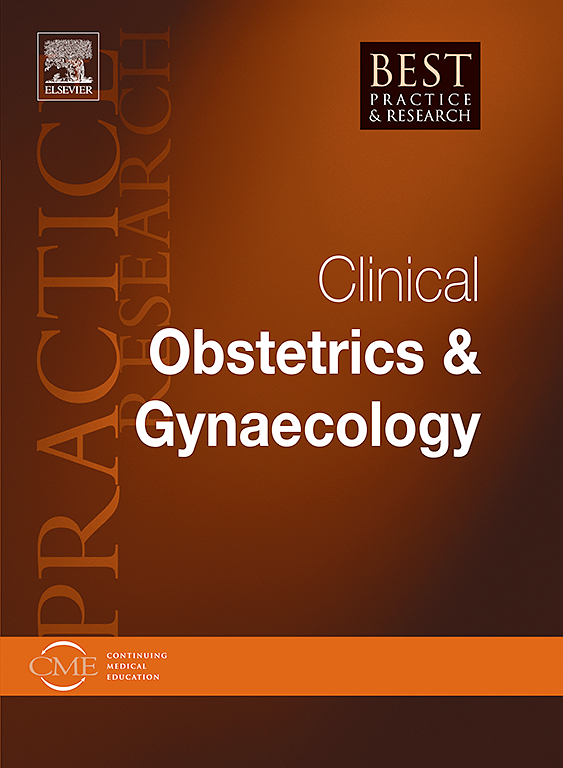有效实施怀孕后避孕服务的创新和战略:FIGO PPIUD倡议的经验教训
IF 4.1
2区 医学
Q1 OBSTETRICS & GYNECOLOGY
Best Practice & Research Clinical Obstetrics & Gynaecology
Pub Date : 2025-07-14
DOI:10.1016/j.bpobgyn.2025.102639
引用次数: 0
摘要
全球未满足的避孕需求仍然高达2.18亿,令人无法接受。其中绝大多数是生活在低收入和中等收入国家的妇女,她们在产后期间的未满足需求特别高。FIGO PPIUD倡议表明,在产科服务中嵌入避孕咨询和插入PPIUD是可行的。这些服务的实施得到了极大的加强,办法是确保咨询对文化敏感,并适当地由受过专门训练的个人提供,最大限度地分担任务以增加获得机会,实现了较高的基本安置,从而降低了驱逐率。中低收入国家的避孕资金目前不稳定,容易受到国际政治的影响。PPIUD具有很高的成本效益。扩大避孕服务,包括PPIUD,如果大规模扩大,有可能对气候变化和一个国家的发展状况产生积极影响。本文章由计算机程序翻译,如有差异,请以英文原文为准。
Innovations and strategies for effective implementation of post pregnancy contraception services: Learnings from the FIGO PPIUD initiative
The global unmet need for contraception continues to be unacceptably high at 218 million. The vast majority of these are women living in low and middle income countries, with a particularly high unmet need in the postpartum period. The FIGO PPIUD initiative demonstrated that it is feasible to embed counselling on contraception and insertion of PPIUD in maternity services. Implementation of these services was greatly enhanced by ensuring that counselling was culturally sensitive and appropriately given through specifically trained individuals, that task sharing was maximized in order to increase access, and that a high fundal placement was achieved resulting in low expulsion rates. Financing for contraception in LMICs is currently precarious and vulnerable to international politics. PPIUD is highly cost-effective. Expansion of contraception services including PPIUD has the potential to impact positively on climate change and a country's development profile if expanded on a large scale.
求助全文
通过发布文献求助,成功后即可免费获取论文全文。
去求助
来源期刊
CiteScore
9.40
自引率
1.80%
发文量
113
审稿时长
54 days
期刊介绍:
In practical paperback format, each 200 page topic-based issue of Best Practice & Research Clinical Obstetrics & Gynaecology will provide a comprehensive review of current clinical practice and thinking within the specialties of obstetrics and gynaecology.
All chapters take the form of practical, evidence-based reviews that seek to address key clinical issues of diagnosis, treatment and patient management.
Each issue follows a problem-orientated approach that focuses on the key questions to be addressed, clearly defining what is known and not known. Management will be described in practical terms so that it can be applied to the individual patient.

 求助内容:
求助内容: 应助结果提醒方式:
应助结果提醒方式:


